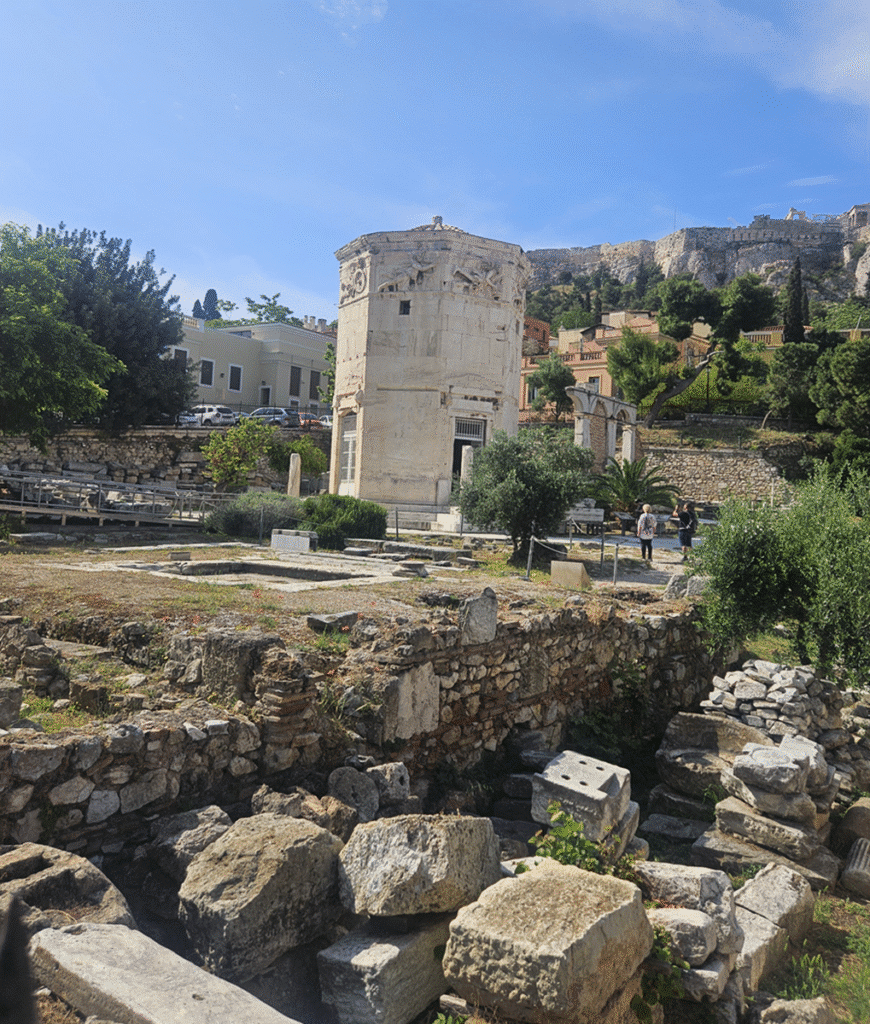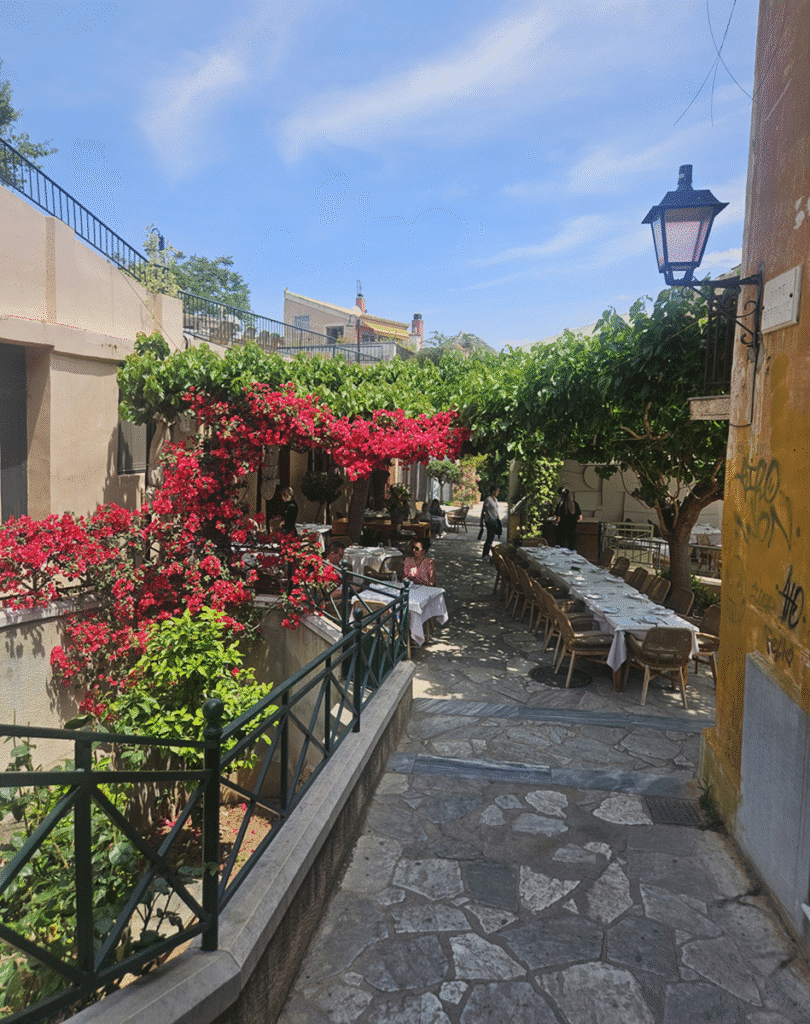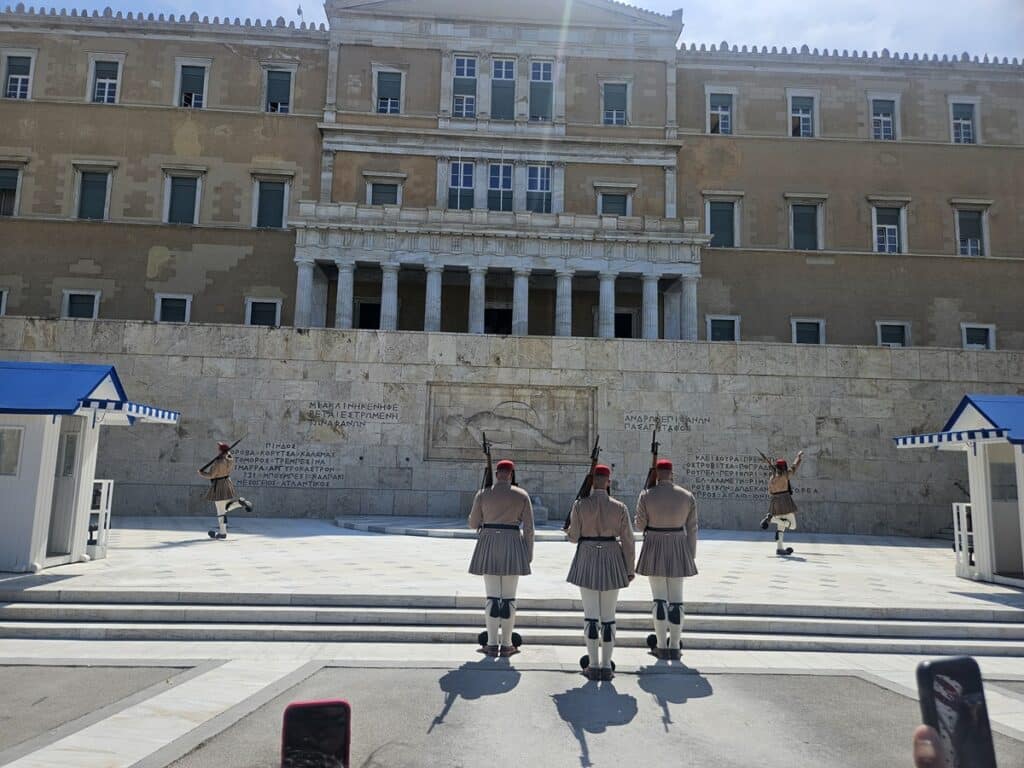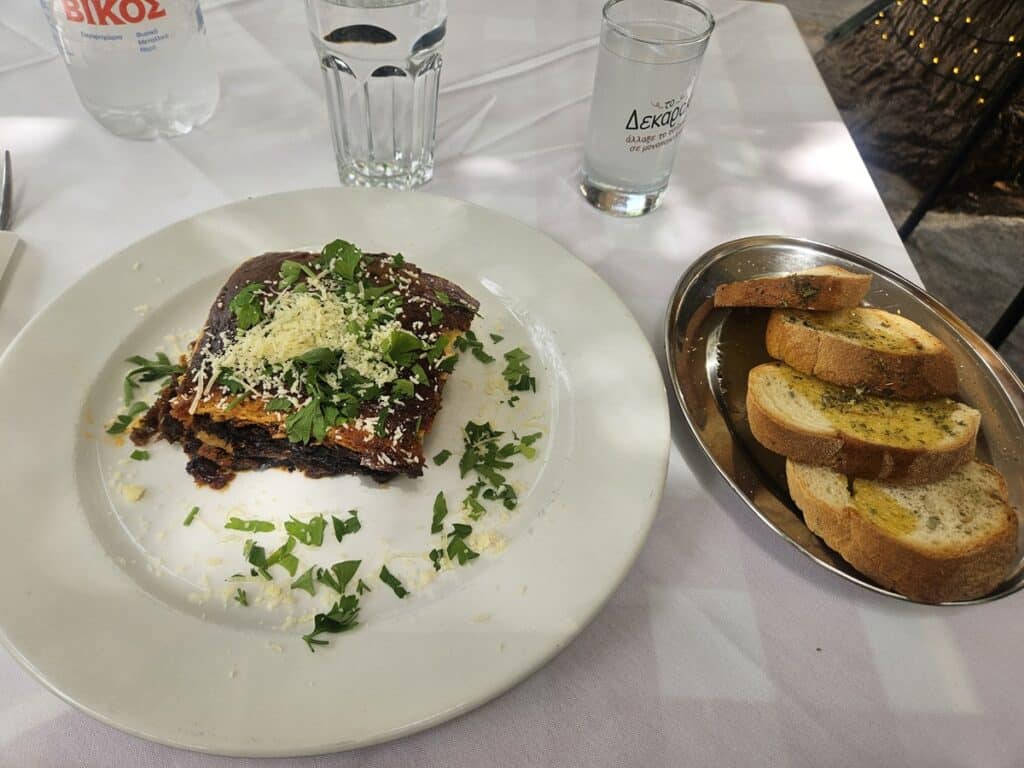2 Weeks in Greece: Best Itinerary for First-Time Travelers
Planning 2 weeks in Greece is one of the best ways to experience the country’s highlights. In just 14 days, you can hike volcanic cliffs in Santorini, explore the Acropolis in Athens, unwind on a wellness retreat in Agistri, and sail to nearby islands like Aegina. These were all the things I did. It’s the perfect balance of history, culture, food, and relaxation.
Greece has a history stretching back over 3,000 years and is often called the birthplace of democracy, philosophy, and theater. Ancient ruins stand side by side with bustling neighborhoods, lively tavernas, and modern nightlife.
Fun fact: Greece has over 6,000 islands, though only about 200 are inhabited — meaning no matter where you go, there’s always another coastline or hidden gem to discover.
Disclaimer: This post may include affiliate links. If you click one of them, I may receive a small commission at no extra cost to you.
How to Get to Greece
Most travelers arrive at Athens International Airport (Eleftherios Venizelos), the country’s main hub. From there, you can connect to ferries or domestic flights to the islands. During peak season, there are also direct flights from major European cities to Santorini, Mykonos, and Crete.
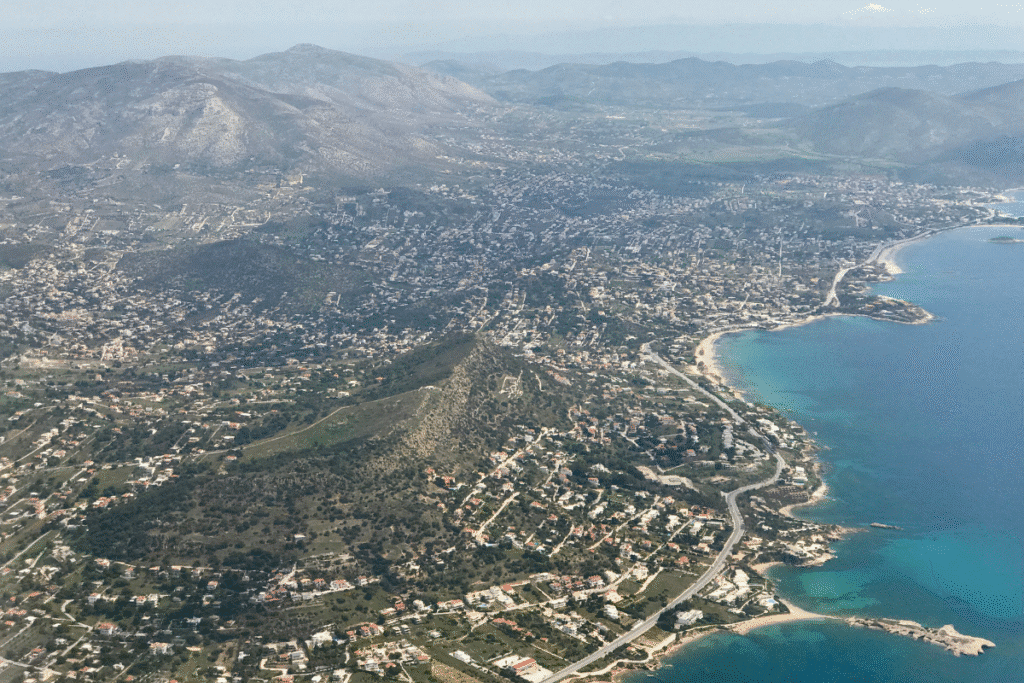
How to Get Around the Islands
The most scenic way to move between islands is by ferry. High-speed ferries link Athens to the Cyclades, while smaller boats connect the Saronic islands. Schedules can vary by season, and windy days may affect crossings, so it’s best to book tickets in advance during the summer.
Each island has its own personality. Santorini is dramatic and volcanic, with cliffs and caldera views. Agistri is smaller and lush, with pine forests and quiet beaches. Where you stay also shapes your experience — main towns offer nightlife and amenities, while villages are calmer and more affordable.
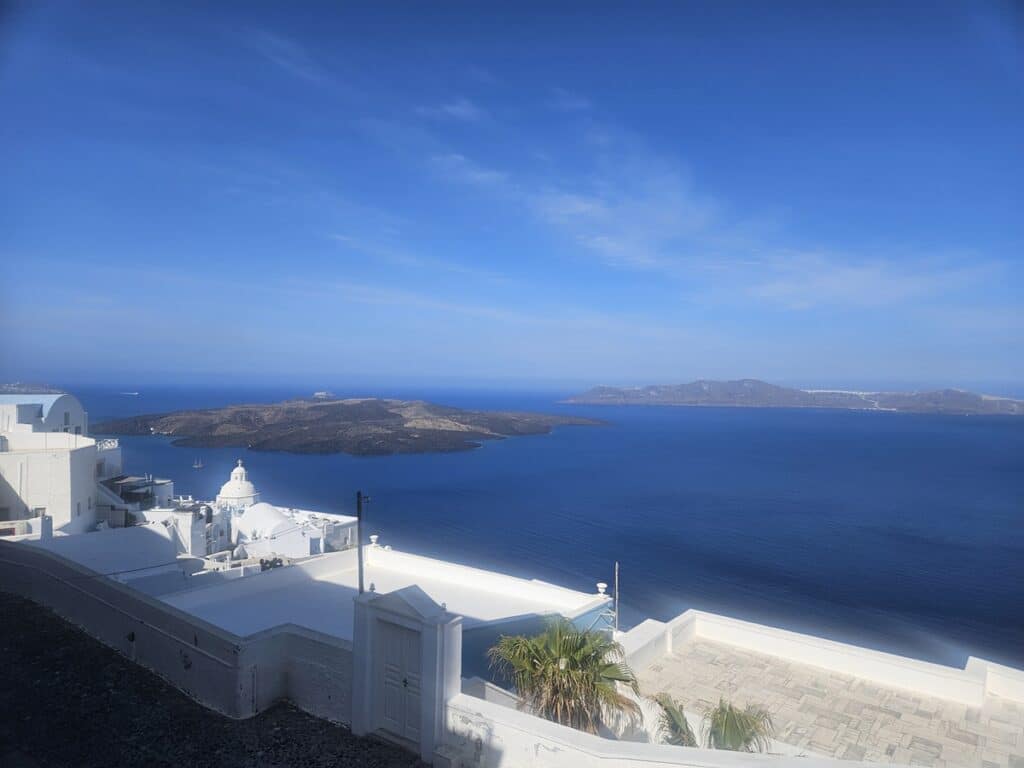
Days 1–3: Santorini
I started my 2 weeks in Greece in Santorini, one of the country’s most iconic islands. With whitewashed villages, blue-domed churches, and sweeping views of the Aegean, it’s the perfect introduction to the Greek islands.
You can spend quite a few hours exploring the town of Fira or Oia, with plenty of beautiful views and sites to see. As well as lots of restaurants, tavernas, and caldera views. Don’t forget to have gelato while visiting Fira.
Fira to Oia Hike
This 10 km cliffside trail is a must. You’ll pass through traditional villages, enjoy endless sea views, and arrive in Oia in time to enjoy a different vibe from Fira. This was one of the best things I did on Santorini, and was worth the time and adventure. Remember to wear a hat and bring water, the sun is very strong there!
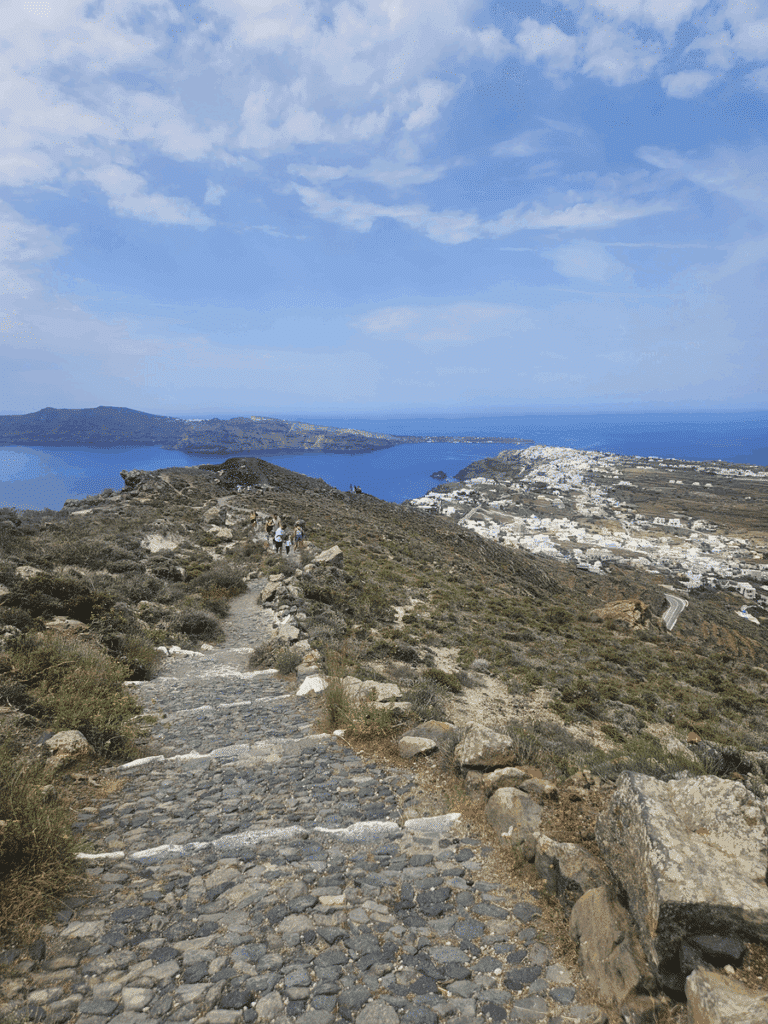
Akrotiri
Known as the “Pompeii of Greece,” this ancient Minoan city was preserved under volcanic ash. Exploring the site feels like stepping into a time capsule. If you are slightest bit into history, or even if you are not, this is worth visiting.
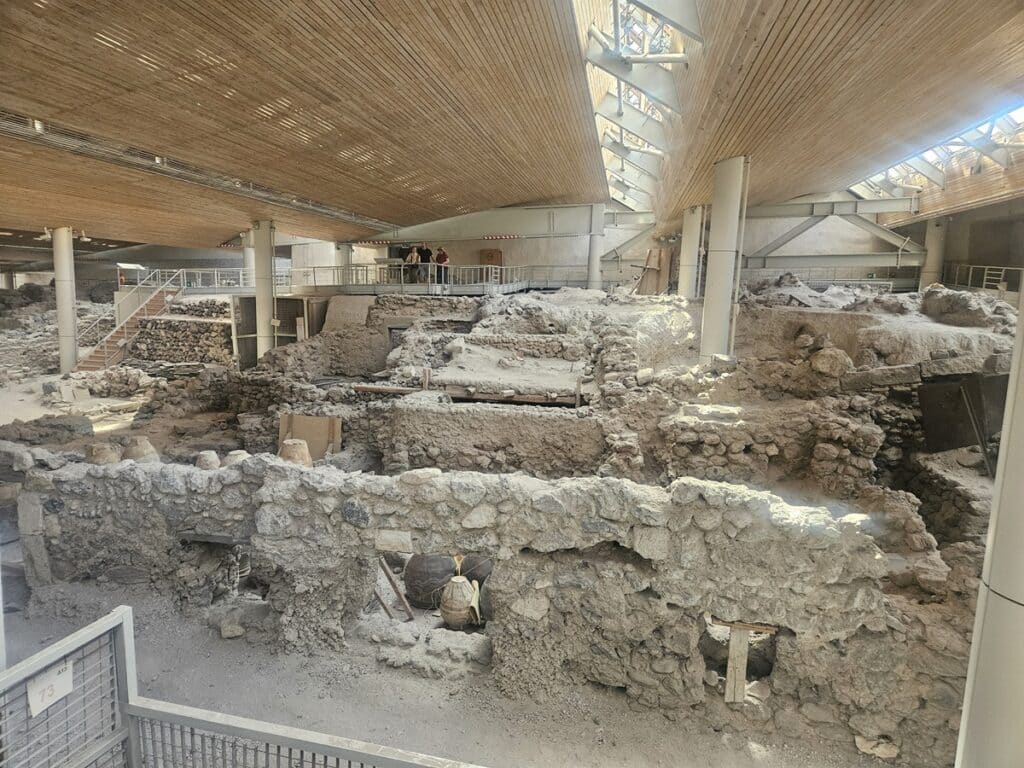
Megalochori
A quiet, traditional village with narrow streets, bell towers, and authentic tavernas. It’s also a great place to sample local wines and get a true village vibe. It was a nice little escape for a few hours, on the way to Akrotiri.
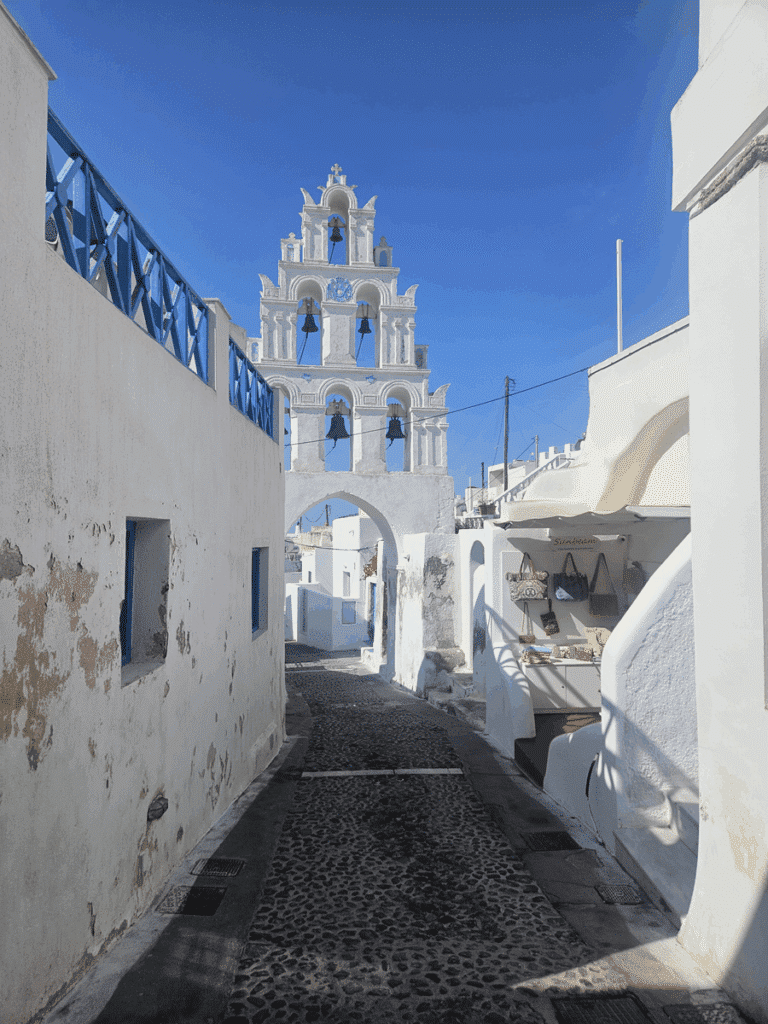
Days 4–5: Athens
Next stop was Athens, a city of more than 3 million people where ancient history and modern life mix seamlessly. You can spend a lot of time exploring the areas, restaurants, nightlife, and much more. But I’ve narrowed it down to a summary of the main things I did when I was there.
On my way from the airport to Athens, I took a private tour that explored Cape Sounion, with stops at the Temple of Poseidon and Lake Vouliagmeni for a beautiful introduction to the mainland and the history that was to come.
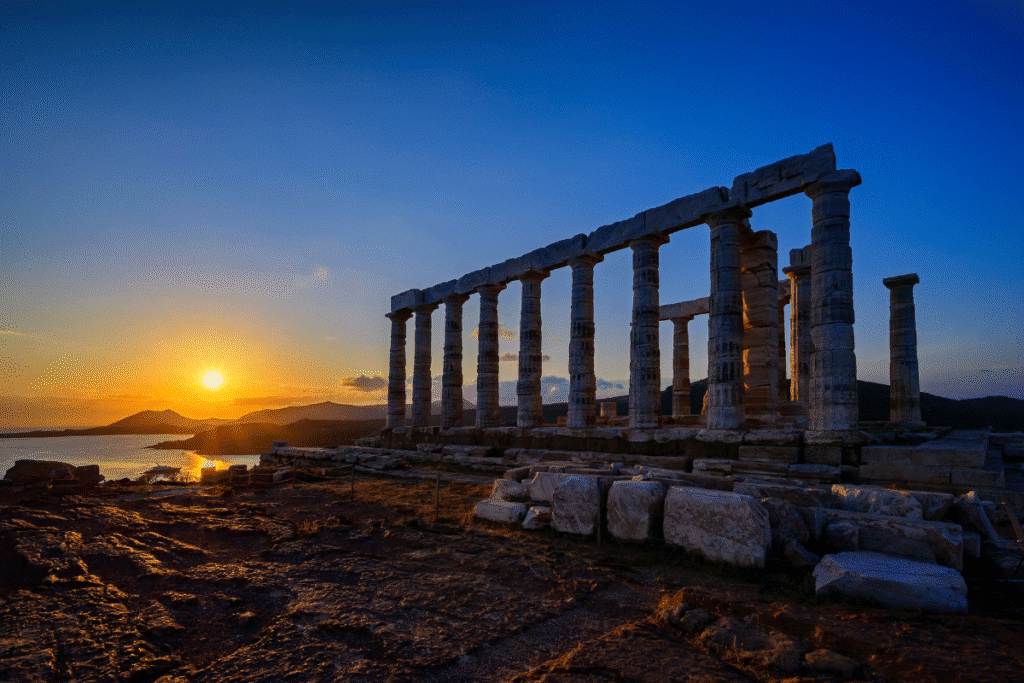
On my first full day, I took a walking tour of Athens, starting in Monastiraki Square before visiting Hadrian’s Library, the Roman and Ancient Agora, Syntagma Square for the Changing of the Guard, and the shaded National Gardens. I ended the day in the charming streets of Plaka and Anafiotika and enjoyed some amazing food.
Day 2 included the Acropolis, the crown jewel of Athens. The Parthenon, Erechtheion, Temple of Athena Nike, and Propylaea all dominate the hilltop. What fascinated me most was learning how the Parthenon forms a perfect “sacred triangle” with the Temple of Poseidon at Cape Sounion and the Temple of Aphaia on Aegina. The ancient Greeks aligned these temples using the stars, blending astronomy and religion into their architecture.
Standing on the Acropolis, it’s incredible to imagine how these temples were positioned across the landscape, connecting religion, astronomy, and power.
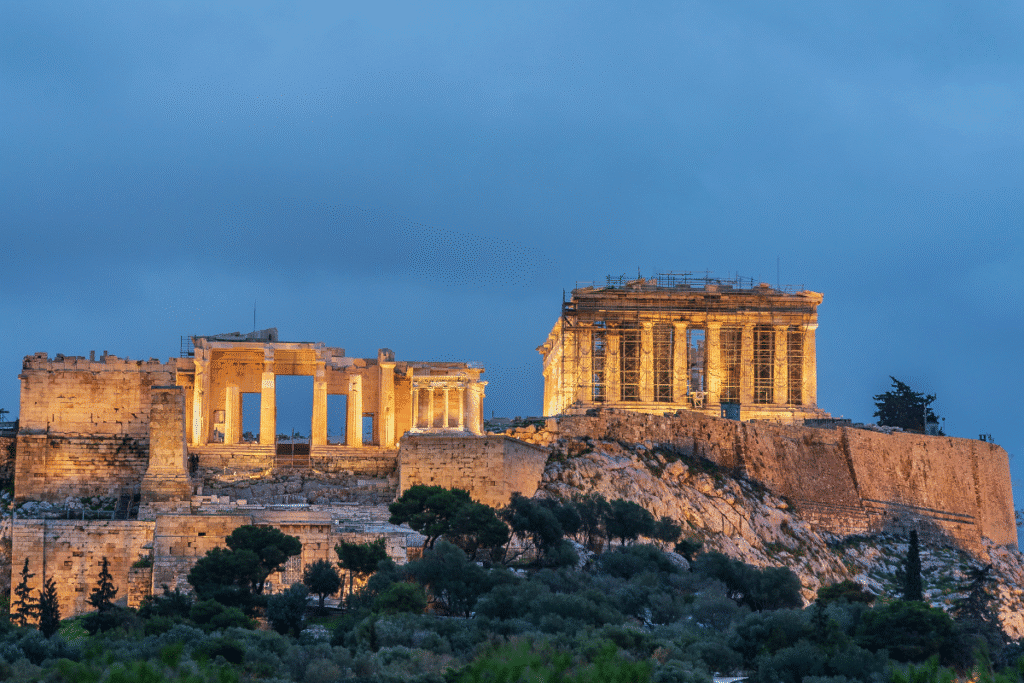
Days 6–12: Agistri & Aegina
After the bustle of the capital, I headed to the Saronic Gulf for a wellness retreat on Agistri. This small, forested island is quiet, laid-back, and the perfect place to reset with yoga, workshops, and slow living by the sea. Make sure you take a boat tour around the island – it is absolutely worth it!
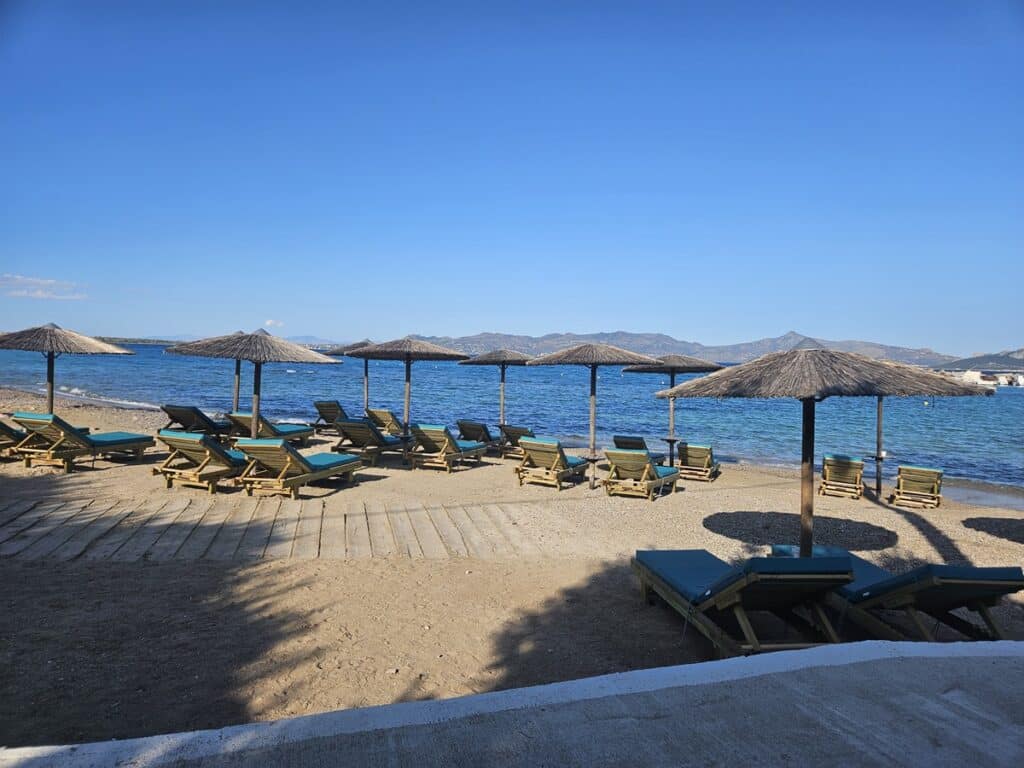
From Agistri, I took a day trip to Aegina, an island known for its pistachios, historic temples, and charming harbor town. Aegina is larger than Agistri but still easy to explore in a day, and it felt like the perfect contrast — energetic but still relaxed.
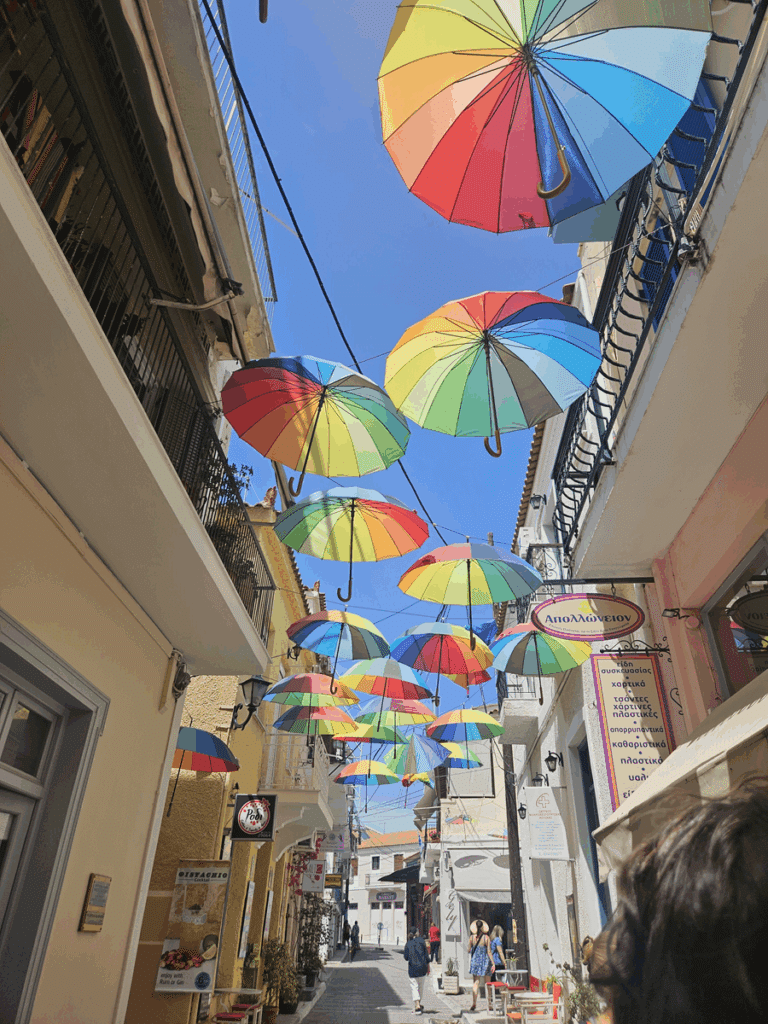
Days 13–14: Back to Athens
I ended my trip with one last day in Athens, revisiting favorite spots and discovering new ones. The highlight was a mythology-inspired tour called the Boudoir of the Gods, which offered a fun, creative way to see the city’s stories come to life. I wish I had taken notes at the beginning of the tour, because they really delve into the history of Greek gods & goddesses.
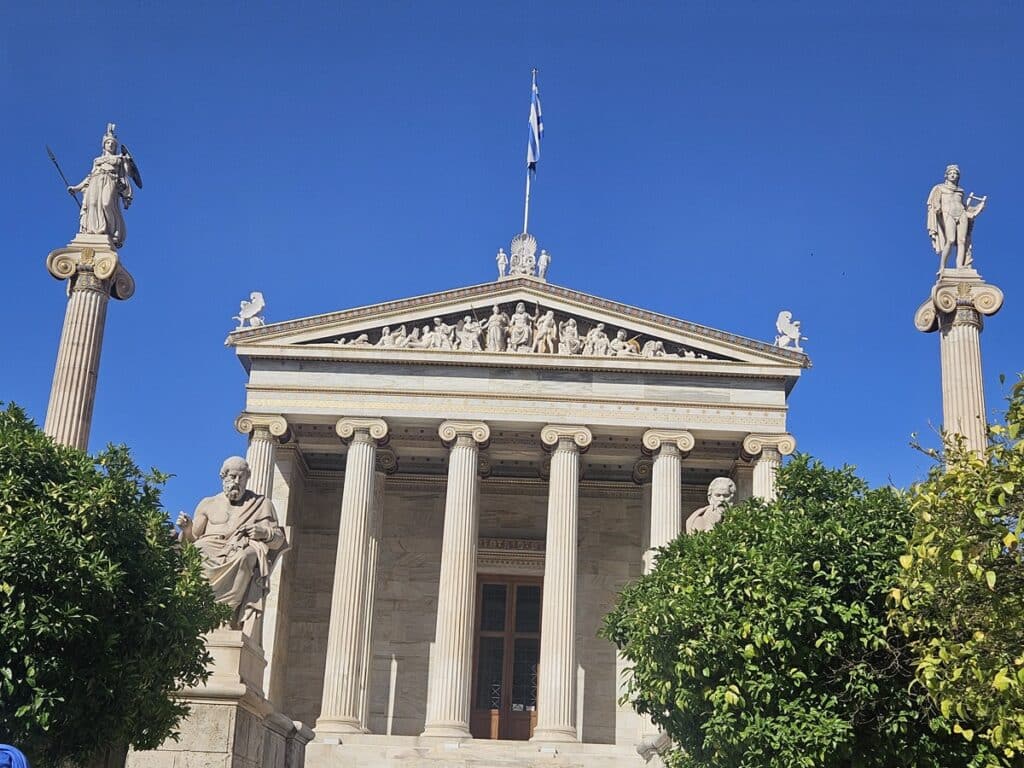
Where to Eat in Greece
Food is at the heart of any Greek trip. Meals are unhurried, often late in the evening, and full of flavor. I tried plenty of wonderful places in Athens, but these were my three favorites:
Each of the islands will provide its own speciality of foods to sample. I will be honest and say that food is cheaper on the smaller islands. If you want the same food as in Athens, but at a lower cost, visit an island like Agistri.
Where to Stay in Greece
In Athens, where you stay can really shape your experience. The city is compact, but each neighborhood has its own personality. Staying in Plaka puts you right in the heart of the action, surrounded by neoclassical buildings, tavernas, and easy access to the Acropolis. Monastiraki is lively and central, perfect if you want to be close to markets, metro stations, and rooftop bars with views of the Parthenon. Psiri is known for its creative energy, with street art, quirky cafés, and nightlife just around the corner.
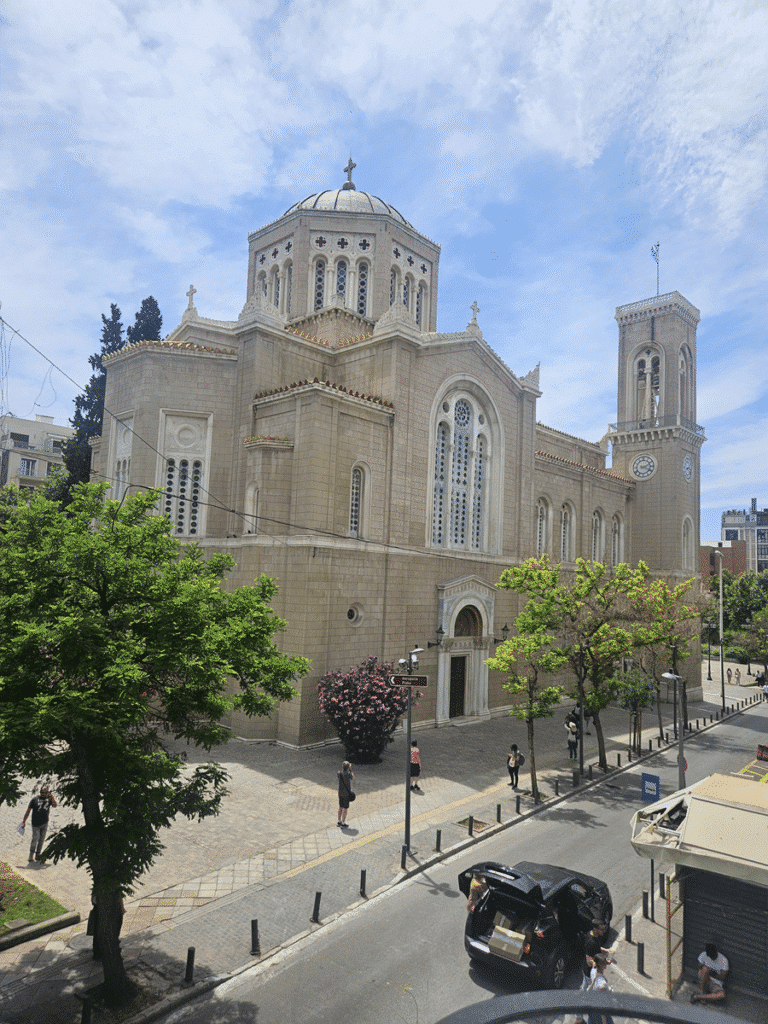
FAQs About 2 Weeks in Greece

Final Thoughts
Spending 2 weeks in Greece is the perfect way to experience the country’s highlights. From the caldera views in Santorini to the history of Athens, the quietness of Agistri, and the charm of Aegina, this itinerary offers a little of everything: history, relaxation, food, and fun.
If you’re wondering how to balance islands and culture in one trip, this 2-week Greece itinerary is proof you really can have it all. I can’t wait to go back and experience more of the wonderful places.
If you enjoyed my post, follow me on social media or subscribe to my newsletter below, so you can stay connected on future posts, trips, tips, and more.



